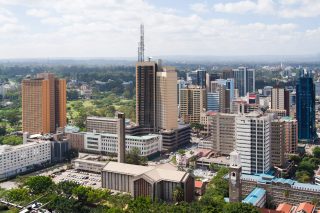According to a World Bank report, Kenya’s economy grew at a 5.7% annual rate from 2015 to 2019, making it one of the fastest-growing economies in sub-Saharan Africa. While a couple of factors influenced this growth, the most critical has been high investor confidence.
In a recent survey by Japan External Trade Organization (JETRO), it was revealed that Kenya is now the most attractive destination for Japanese firms looking to make new investments in Africa, beating the continent’s larger economies like South Africa and Nigeria.
Considering the number of Japanese firms currently in Kenya’s automotive, and finance sector, there is a high probability of a stronger Kenya-Japan relationship in the nearest future. Also, Kenya’s position as the economic hub of East Africa, with many emerging start-up companies offering the big potential for collaboration influenced the survey.
A growing car industry
Kenya’s automotive industry is a fast-growing one, with big auto dealers like Toyota, Cooper Motor Corporation, General Motors, Simba Colt, and DT Dobie already present in its automobile market. Also, Peugeot SA (France) resumed operations in the country in 2017, and Volvo AB set up a $24 million plant in the same year.
With the country’s dependence on car imports up to $593 million, the government intends to attract more investment by replacing the market share of used vehicles and used parts with new products manufactured or assembled in Kenya, leaving this space open for more investments in the country.
Kenya’s population is projected to rise to 63.9 million in 2030 and 23.3 million aged 18-35 years, coupled with a diverse private sector, professional workforce, and strengthened infrastructure, Kenya has the potential to be one of Africa’s success stories.
Potential of geothermal power
According to New Climate, the government of Kenya plans to build two coal power plants over the next 30 years. One in Lamu, a 981 MW power plant divided into three units of 327 MW each (to be commissioned by 2024). Another in Kitui, a 960 MW power plant scheduled for 2034-36.
Currently, Kenya is taking the lead in the conversion of geothermal energy. With the first geothermal plant in Africa built in Kenya, more businesses are likely to move to the country for ease of business.
Kenya has a long history of exploiting geothermal resources, and it is yet to exploit coal. Along the Kenyan Rift Valley, Kenya has a high geothermal resource potential of about 10,000 MW. They currently have 745 MW of installed geothermal power, the majority of which is located in the Olkaria fields.
With the government’s plan to tap into the potential of the energy sector and its resources, investors are assured of constant electricity to smoothly run their businesses.








